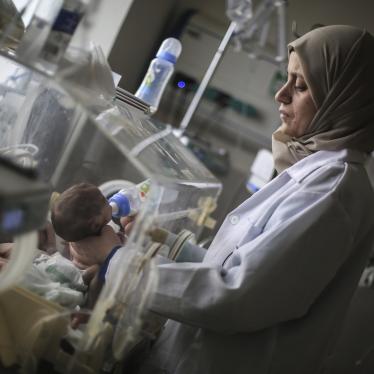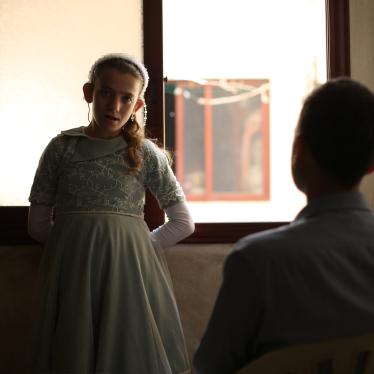Denmark, Finland, Norway, and Sweden should promptly repatriate their nationals unlawfully held in life-threatening conditions in northeast Syria, Human Rights Watch said in a letter to the four governments today. Detention estimates for Nordic nationals range as high as 135 including up to 85 children, more than half under age 6.
The Nordic detainees are among thousands of foreigners held in northeast Syria as Islamic State (also known as ISIS) suspects and family members since at least March 2019. None of the foreigners have been taken before a judge to determine the legality and necessity of their detention, as required under international law. Hundreds of people, including children, have died in these detention centers, including dozens during 2021 alone.
“Nordic countries have the ability to end the unlawful detention and horrific suffering of their nationals, most of them children who were victims of ISIS,” said Letta Tayler, associate crisis and conflict director at Human Rights Watch. “As these detainees enter a third year of indefinite detention, their governments’ excuses for inaction ring increasingly hollow.”
The Kurdish-led authority for northeast Syria has repeatedly called on all countries to repatriate their nationals. Human Rights Watch has found the detainees’ conditions of confinement to be deeply degrading and often inhuman. Governments that substantively contribute to the detainees’ abusive confinement may be complicit in their unlawful detention and collective punishment.
The four Nordic countries have repatriated 27 nationals from Northeast Syria, two to Denmark, ten to Finland, eight to Norway, and seven to Sweden. Twenty-four are children, and three are women, two Finns and one Norwegian.
As many as 30 Danes, 22 Finns, 8 Norwegians, and 65 to 75 Swedes remain locked in camps and makeshift prisons, according to media reports and civil society groups. In addition to up to 85 children, estimates for the Nordic detainees include up to 36 women and 14 men. Their countries have resisted even bringing home children, including some who are seriously ill, unless they are orphaned, or their mothers agree to remain behind.
Notably, Denmark on May 18 announced that it intends to repatriate three mothers with their 14 children but has not said when, and one media outlet reported that it could wait up to one year. In March Denmark released a Police Intelligence Service report it had delayed for a year that warned the country faced a greater security threat leaving the children in northeast Syria than bringing them home. The Danish authorities also said they would bring home five other Danish children, but only if their three mothers, who are among several Danes the government has stripped of citizenship in controversial administrative proceedings, stay behind.
Repatriating children by separating them from their mothers without individual, expert assessments of whether such separation is in the child’s best interest flouts the right to family unity, a pillar of the Convention on the Rights of the Child, and the right to family life under the European Convention on Human Rights.
All countries have a responsibility to protect people on their territory from human rights abuses. That obligation extends to their citizens facing serious violations, including loss of life and torture, when governments can take reasonable steps to protect them from such abuses.
In its letter, Human Rights Watch challenges the Nordic countries’ arguments that in most or all cases they lack the authority or ability to uphold the rights of their nationals in northeast Syria. In addition to calling for repatriations, the cash-strapped northeast Syrian authorities have urged Nordic and other countries to help them create courts to investigate and prosecute the foreign adult detainees, without success.
Given the absence of due process for foreigners detained in northeast Syria, investigations by home countries are currently the only viable option to provide redress to victims for any serious crimes these detainees may have committed.
The arbitrary detention and lack of reintegration support for the detained children violate international principles for children associated with armed groups, who are to be viewed primarily as victims. UN Security Council Resolution 2396 of 2017, which is binding on all member states, emphasizes the importance of assisting women as well as children associated with groups such as ISIS who may themselves be victims of terrorism.
“The Nordic countries can be a model for safe, orderly, and rights-respecting returns of foreign ISIS suspects and their families,” Tayler said. “Conversely, if Nordic countries fail to help their nationals held in northeast Syria, they could lower the bar for human rights worldwide.”








